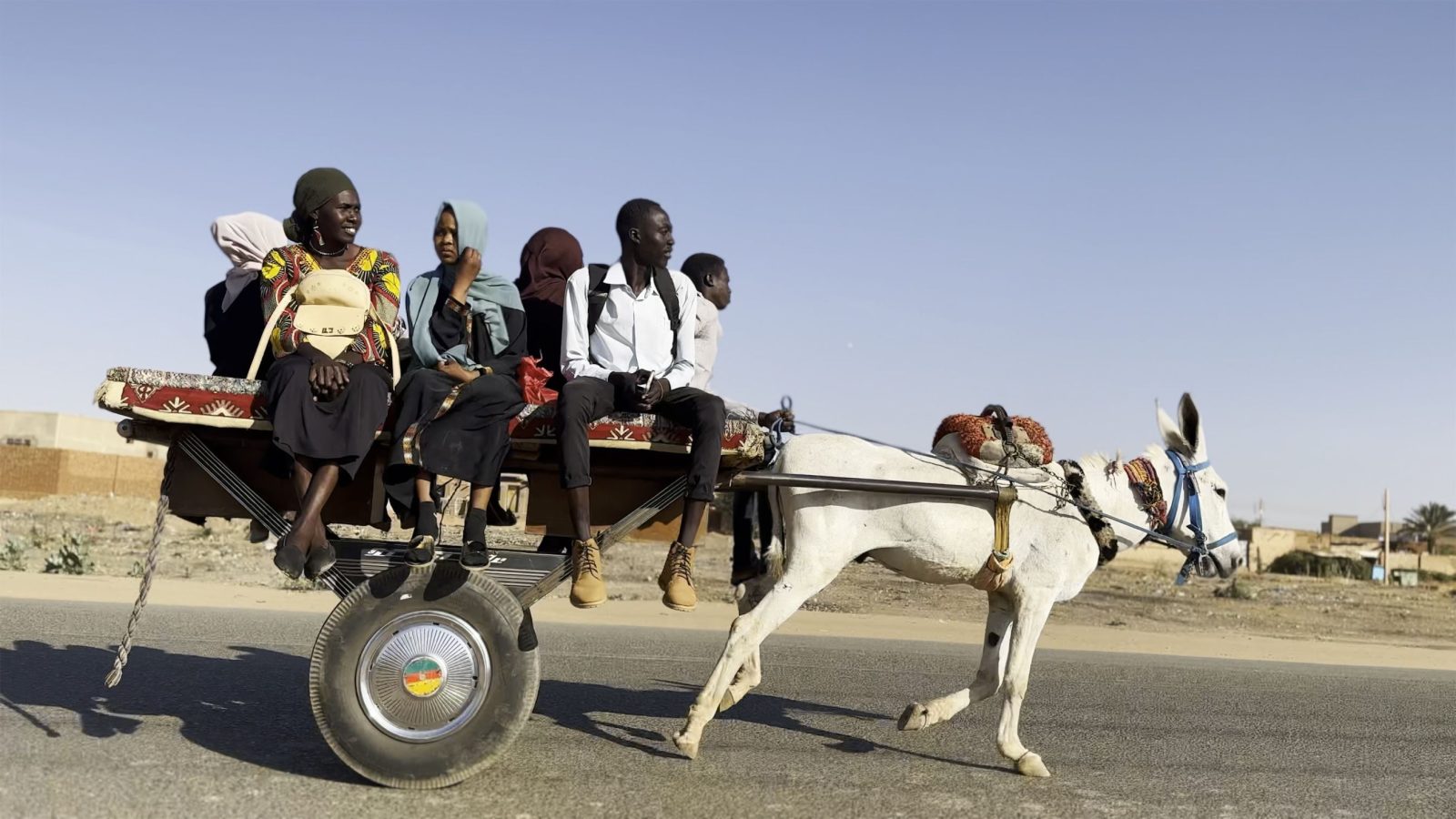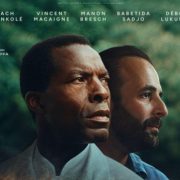Khartoum proposes something vital: that the capacity to document one’s own dispossession and maintain narrative agency even in the aftermath of institutional collapse, is itself a form of survival and dignity.
By Jerry Chiemeke
When conflict erupts, those caught in its wake rarely have the luxury of documenting or distilling meaning from the chaos. Yet in the 81-minute documentary, Khartoum (2025), five ordinary citizens of Sudan’s capital become unlikely archivists of their own displacement, channeling their anguish into acts of remembrance and reimagination that transcend the conventional documentary impulse.
Directed by four distinct creative voices—Anas Saeed, Rawia Alhag, Ibrahim Snoopy Ahmad, and Timeea Mohamed Ahmed—Khartoum emerges as an experimental meditation on loss, identity, and the stubborn persistence of human hope amid civilisational collapse. It is a film that refuses the aesthetics of victimhood, even as it unflinchingly documents the mechanics of dispossession.
The premise looks simple at first glance: filmmakers begin recording the lives of five city residents from different economic strata and social positions. There is Jawad, a young activist with the Resistance Committee; Lokain and Wilson, children who collect bottles for survival; Khadmallah, who runs a humble tea stall; and Majdi, a civil servant navigating the constraints of state machinery. Each individual represents varied relationships to authority, as well as different dreams scaled to the possibilities that their respective circumstances permit.

Then war breaks out. The conflict between the country’s army and the Rapid Support Force militia displaces ten million people, transforming Sudan from a nation grappling with political uncertainty into a landscape of active catastrophe. The filmmakers and their subjects are forced to flee, and ultimately become refugees in a world that has grown increasingly indifferent to African suffering.
This dislodgement could have rendered the documentary project moot. Instead, it becomes the generative force around which the film constructs its inquiry.
Khartoum deploys green screen technology, not as an aesthetic flourish but as a philosophical necessity. Displaced from their homeland, the subjects cannot merely recount their experiences in the familiar spaces where those experiences occurred. So, they perform them. They reenact. They conjure the contours of a life now inaccessible, grounding their narratives in the virtual and the constructed, acknowledging the impossibility of authentic return while refusing to abandon the attempt.
It is an audacious choice, one that mirrors the reality of displacement itself: the way memory unfolds when the physical spaces that anchor it have been destroyed or rendered inaccessible. The green screen becomes a stage for truth-telling, a technological apparatus that paradoxically renders the emotional and psychological dimensions of trauma more legible than conventional documentary realism might.
The editing, which weaves together social media conversations captured against ruins, archival news footage, and intimate reenactments, refuses a linear narrative. Instead, it layers different time capsules, modes of representation, and relationships to the catastrophe. You are reading history, witnessing testimony, observing performance, consuming mediated images all simultaneously. It is disorienting, but that is precisely the point.
What emerges most forcefully from these five testimonies is not a unified explanation of Sudan’s collapse, but rather the contested terrain upon which that collapse unfolds. For Khadmallah, the conflict is inseparable from questions of ethnicity and national identity; warring factions have subordinated national cohesion to ethnic allegiance, fracturing the possibility of collective political consciousness.

Majdi, by contrast, traces the present crisis to petty political scheming and greed. The children ask simpler questions: What started this war? What have we done to deserve this?
These are not reconcilable narratives. They represent different generational commitments and variants of political vocabulary. Still, Khartoum allows these perspectives to coexist, sometimes in tension, sometimes in conversation. What unites them is not agreement, but shared loss.
The film spends considerable time with Khadmallah reflecting on the life she inhabited before the war: the tea stall as social nexus, where community was daily renewed through the ritual of shared consumption. Now that the world has been blown to smithereens. The people who assembled there are scattered, possibly dead, their fates unknown.
Similarly, Majdi grapples with the separation from his son, the severing of the family bond that sustained his sense of stability and purpose. The war has rendered him unable to perform the role through which he understood himself; he has been untethered from his own identity.
What Khartoum insists upon, with quiet determination, is that displacement is not the end of narrative, merely a rupture within it. These five subjects are not unscathed. They do not forget. The destruction remains legible, their losses unrecoverable. But they do something wondrous: they persist. They dream. They recall. They bear witness. They steal moments of colour and music in order to assert something the mainstream media cannot capture, that Sudan and its people transcend the political chaos and desolation.
The cinematography by various hands—dark, often austere, capturing both the specific textures of Khartoum’s urban geography and the abstract aesthetics of ruin—conveys something true about the texture of catastrophe. Yet the film resists the temptation to aestheticise suffering or transform crisis into spectacle. There are moments of colour precisely because colour matters, because the capacity to perceive beauty amidst destruction is itself an act of resistance and remembrance.

Khartoum is experimental cinema at its most rigorous. It’s a piece of work that deploys innovation not for its own sake, but as a means of grappling with the inadequacy of conventional documentary to capture the lived reality of forced displacement. What the film ultimately proposes is that truth in the aftermath of catastrophe should be mediated, performed, and (where necessary) reconstructed.
The future remains uncertain. Rebuilding in exile is fragile, and constantly haunted by absences. But Khartoum proposes something vital: that the capacity to document one’s own dispossession and maintain narrative agency even in the aftermath of institutional collapse, is itself a form of survival and dignity. These five wandering souls may have lost their nation, but they have seized the means to tell their own story: raw, vulnerable, gritty, defiantly alive.
*Khartoum screened at this year’s BFI London Film Festival. This builds on its circuit run since its world premiere at Sundance (where it was nominated for the Grand Jury Prize), followed by screenings at Berlinale, DocsBarcelona (where it clinched the Young Jury Reteena Award) and Prague One World Film Festival. Its next stop is Jali Weekender, scheduled for November.
Jerry Chiemeke is a Nigerian-born writer, film critic, journalist, and lawyer based in the United Kingdom. His writing has appeared in Die Welt, The I Paper, The Africa Report, The British Blacklist, Berlinale Press, The Johannesburg Review of Books, Culture Custodian, Olongo Africa, and elsewhere. Chiemeke’s work has won or been nominated for the Pushcart Prize, Ken Saro Wiwa Prize, Diana Woods Memorial Award for Creative Nonfiction, Best Small Fictions, and the Quramo Writers Prize. He is the author of the critically-acclaimed short story collection, Dreaming of Ways to Understand You.



